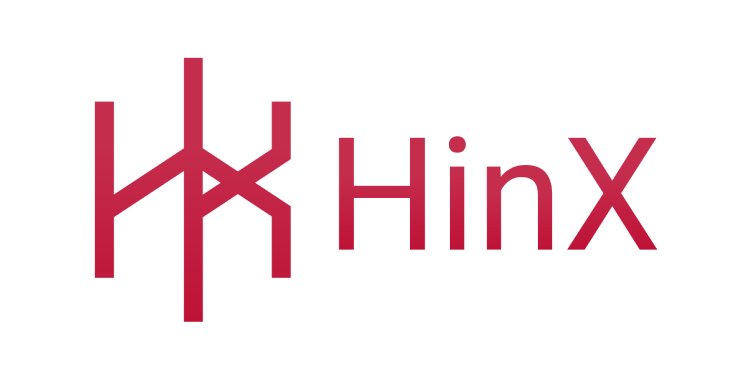On 9 December 2019, during the Foreign Affairs Council, the High Representative of the European Union for Foreign Affairs and Security Policy announced the launch of preparatory work aimed at establishing a European sanctions regime for human rights violations and abuses. On that occasion, the foreign ministers previewed the new European Action Plan for Human Rights and Democracy (2020–2024), which was subsequently presented on 25 March 2020 by the High Representative and the European Commission and approved by the Council of the European Union on 18 November 2020.
The new European Action Plan will define intervention priorities across five lines of action: protecting and empowering individuals; building resilient, inclusive, and democratic societies; promoting a global system for human rights and democracy; seizing opportunities and addressing challenges presented by new technologies; and achieving results through partnership. The Action Plan will establish a framework allowing EU delegations and offices, as well as Member States’ embassies, to adopt specific operational measures at national, regional, and multilateral levels, taking into account local circumstances and specificities.
The new EU global sanctions regime on human rights
On 7 December 2020, the Council adopted—first by Decision (CFSP) 2020/1999 and then by Regulation (EU) 2020/1998—the first EU global human rights sanctions regime. Regulation (EU) 2020/1998 and Decision (CFSP) 2020/1999 establish a framework for restrictive measures aimed at addressing serious violations and abuses of human rights worldwide. Article 2, paragraph 1 of the Regulation defines the scope of application, which includes four types of violations: genocide; crimes against humanity; serious violations of the following human rights: torture and other cruel, inhuman or degrading treatment or punishment; slavery; extrajudicial, summary or arbitrary executions; enforced disappearances; arbitrary arrests or detentions; and other human rights violations, provided they are widespread and systematic, including human trafficking, sexual and gender-based violence, violations of the freedoms of peaceful assembly and association, opinion and expression, religion or belief.
The provision, in paragraph 3, states that the recipients of the new global sanctions regime are “natural or legal persons, entities or bodies,” which may include “state actors,” “other actors exercising effective control or authority over a territory,” and “other non-state actors.” Article 1, paragraph 4, of Decision (CFSP) 2020/1999 specifies that the Council of the European Union assesses the inclusion of non-state actors in the list of natural and legal persons, entities, and bodies referred to in Article 3 of the Regulation (Annex I to the Regulation), taking into account the foreign and security policy objectives provided for in Article 21 of the Treaty on European Union and the gravity and/or impact of the abuses.
Annex I to the Regulation shall include natural or legal persons, entities or bodies that, with intent and awareness, and regardless of their nationality or the location where the violations are committed:
a) have been responsible for the violations listed in Article 2, paragraph 1;
b) provide financial, technical, or material support for the commission of such violations or are otherwise involved in such acts, including planning, directing, ordering, assisting, preparing, facilitating, or encouraging them;
c) are associated with the natural or legal persons, entities or bodies referred to in points a) and b).
Annex I must state the reasons for the inclusion and the information necessary for the identification of the natural or legal persons, entities or bodies listed, as well as sufficient information to identify them.
The Council, moreover, communicates to the designated parties the decision of inclusion, including the relevant reasons; the listed parties may submit new substantial evidence on the basis of which the Council reviews the case and, in turn, communicates the decisions taken to the party. The list in Annex I is reviewed periodically, at least once a year.
The parties listed in Annex I may appeal the sanctioning measures before the Court of Justice of the European Union.
The global sanctions framework adopted by the European Union includes: a ban on entry into or transit through the territory of the Union for individuals listed in Annex I to the Regulation; the freezing of funds and economic resources; and the prohibition for European economic and financial operators from making funds and other economic resources available to the individuals equally listed in the aforementioned Annex I.
Article 3 of the Regulation provides for the freezing of all funds and all economic resources belonging to, owned, held, or controlled by the individuals indicated in Annex I to the Regulation. The freezing must be understood as the prohibition, under any title, of disposing of the economic resources previously available to the subjects targeted by the restrictions. With reference to funds—understood as financial assets and benefits of any kind—the freezing entails the prohibition of movement, transfer, alteration, use, or management of the funds or access to them in such a way as to change their volume, amount, location, ownership, possession, nature, destination, or any other change that enables the use of the funds, including portfolio management.
The Regulation authorizes the competent authorities of Member States to release, in specific situations, certain frozen funds or economic resources, as in the case of the “humanitarian exemption” provided for in Article 5, which allows the competent European authorities to unblock certain funds or resources in order to provide humanitarian aid (medical or food assistance, transfer of humanitarian workers, evacuation of populations, etc.). It is considered that the freezing of funds and economic resources, pursuant to Regulation (EU) 2020/1998, should refer to Directive 2014/42/EU on the freezing and confiscation of instrumental and criminal proceeds in the European Union and to the more recent Regulation (EU) 2018/1805 on the mutual recognition of freezing and confiscation orders.
In addition to the restrictive measures previously examined, Article 16 of the Regulation assigns to Member States the competence to establish sanctions—effective, proportionate, and dissuasive—applicable at the national level for violations of the provisions laid down in Regulation (EU) 2020/1998.
The regulation requires the Commission and the Member States to exchange all information regarding the adoption of restrictive measures related to serious violations and abuses of human rights and, in particular, those concerning the freezing of economic resources or funds, the possible release of certain frozen funds or economic resources, and any issues related to the violation and enforcement of the rules, to rulings by national judicial bodies, as well as any information that could hinder the effective implementation of the regulation.
Article 19 establishes, finally, that the regulation applies: in the territory of the Union, including its airspace; on board any aircraft or vessel under the jurisdiction of a Member State; to any natural person who is a national of a Member State, whether within or outside the territory of the Union; to any legal person, entity or body that is inside or outside the territory of the Union and is incorporated or constituted under the law of a Member State; and to any legal person, entity or body with respect to business carried out, wholly or in part, within the Union.
Strengths and weaknesses of the new European global sanctions system
Let us now analyze the strengths and weaknesses of the new European global sanctions system concerning serious violations and abuses of human rights.
First of all, a limitation has been identified with regard to the designation of subjects to be included in Annex I, for which a significant level of consensus is required; in fact, within the framework of the Common Foreign and Security Policy (CFSP), the Council can only act unanimously (except in rare cases). In this regard, the Dutch proposal to adopt qualified majority voting was rejected. Another limitation has been identified on a substantive level, as corruption is not included among the sanctionable violations, nor is there any provision for the participation of civil society organizations which, unlike the U.S. model, cannot recommend the adoption of sanctions.
Regarding the exchange of information between the Commission and the Member States, it would be desirable to establish a single European platform similar to those created in the field of anti-money laundering and the automatic mandatory exchange of information in the tax domain. In this respect, in the article “Interconnections between tax regulation and anti-money laundering legislation in the tax field and the European mechanism for information sharing”, published in Il Sole24Ore Norme e Tributi Plus on February 22, 2021, it was suggested that, for the effective operation of information exchange at the Union level, a single European platform could be developed as a single point of access, hosting all central databases of the various sectors, interoperable with each other. In this sense, such a single European platform could also contain information regarding serious violations and abuses of human rights.
Among the strengths of the new global sanctioning regime is the overcoming of the limitations of the current system, centered on the imposition of sanctions connected to specific geographical contexts or conflicts, which require the European institutions to establish, on a case-by-case basis, a legal framework for each individual case, thus limiting their ability to react to new crises or human rights violations. Indeed, the new regime disregards the link of affiliation between the perpetrator of a violation and their country of origin, allowing European institutions to impose sanctions without triggering large-scale political and economic conflicts with third countries. Moreover, the new European sanctioning regime also aims to hold accountable European economic and financial operators, who will be required to conduct, in advance, a more thorough screening of their counterparties at a global level.
The new system – which introduces significant innovations with particular reference to the subjects targeted by the restrictions, the sanctionable human rights violations, and the types of measures that can be imposed – integrates the current so-called “geo-referenced” sanctioning system and other Union instruments of political dialogue, conditionality in trade agreements, and development cooperation, also developed in the context of human rights promotion.
Ultimately, the new regime overcomes the fragmented approach of the current system and has the potential to provide greater flexibility, effectiveness, and speed to the European response in cases of serious human rights violations, contributing to the development of European and international law and to strengthening the European Union’s role as a more incisive and autonomous global actor, also in the field of human rights, just as has already occurred in the fight against money laundering and the financing of terrorism.
New obligations in the field of human rights within the Union
European economic and financial operators, but also state actors, will be required to conduct, in advance, a more thorough screening of their counterparties on a global scale to avoid being involved in the restrictive measures provided for in the regulation. Beyond the assessment of the subjective profile of the specific conduct – which to be established requires the awareness and intent on the part of the subject to commit the violation – entrepreneurs, professionals, and consultants must in any case avoid providing financial, technical, or material support to the active perpetrators of the violations covered by the regulation or otherwise being involved through the provision of consultancy activities to the responsible subjects, aimed at planning, directing, assisting, coordinating or further facilitating, encouraging, or preparing such unlawful conduct. In this regard, a prior due diligence activity on counterparties appears to be of utmost importance.
Additional obligations in the field of human rights in Italy: the individual non-financial statement
In addition to the obligations imposed by Regulation (EU) 2020/1998 and Decision (CFSP) 2020/1999, in Italy there are further obligations for “public interest entities” to disclose information on the policies adopted and the results obtained in environmental and social matters, as well as those relating to personnel, respect for human rights, and the fight against both active and passive corruption.
This is established by Legislative Decree No. 254 of 30 December 2016, which transposed Directive 2014/95/EU of the European Parliament and of the Council of 22 October 2014, amending Directive 2013/34/EU as regards the disclosure of non-financial and diversity information by certain large undertakings and groups. Legislative Decree No. 254/16 requires public interest entities – as defined in Article 16, paragraph 1, of Legislative Decree No. 39/10, which have had “on average, during the financial year, more than 500 employees and whose consolidated financial statements meet at least one of the following criteria: 1) total balance sheet assets exceeding EUR 20,000,000; 2) total net revenues from sales and services exceeding EUR 40,000,000” – to prepare for each financial year an “individual non-financial statement”.
Companies falling within the scope of Legislative Decree No. 254/16 must provide information regarding their business model of management and organization, the policies adopted in social and environmental matters, those related to personnel, respect for human rights, and the fight against corruption, the main risks associated with these areas, as well as performance indicators representing the results (key performance indicators).
The individual non-financial statement, regardless of the standards adopted, must contain at least the following information: the use of energy resources, distinguishing between those produced from renewable and non-renewable sources, and the use of water resources; greenhouse gas emissions and other atmospheric pollutant emissions; the impact, where possible on the basis of hypotheses or realistic scenarios even in the medium term, on the environment as well as on health and safety, associated with risk factors or other relevant environmental and health risk factors; social aspects and those relating to personnel management, including actions undertaken to guarantee gender equality, measures aimed at implementing international and supranational organization conventions in the field, and the methods by which dialogue with social partners is carried out; respect for human rights, the measures adopted to prevent violations, as well as actions taken to prevent discriminatory behavior and actions in any form; the fight against both active and passive corruption, including an indication of the tools adopted for that purpose.
As these are minimum reporting standards, companies are free to possibly extend the scope of the reporting. Legislative Decree No. 254/16 provides the possibility for all other non-obligated companies to submit a non-financial statement on a voluntary basis, with simplified forms provided for SMEs. Companies that do not apply policies on one or more of the aspects for which the disclosure of such information is required must state the reasons for this choice in accordance with the “comply or explain” principle. The statement containing non-financial information, in effect from 1 January 2017, is subject to independent review and may be included in the management report or constitute a separate report marked with reference to Legislative Decree No. 254/16. The national legislator grants Consob the power to establish, by specific regulation: the procedures for the direct submission of the non-financial statement to Consob; any additional publication methods of the non-financial statement beyond filing with the business register; the methods and deadlines for Consob’s oversight, and the conduct principles and procedures for verifying the conformity of the information by the auditors. From the analysis of Consob’s consultation document of 21 July 2017, on the implementing provisions of Legislative Decree No. 254/16, the following elements emerge: the non-financial statement, although it may be assimilated to pre-assembly documentation, is not subject to a shareholder vote; the system of competences and controls outlined in the decree is similar to the rules and general principles that govern the distribution of powers between the administrative body (Article 2381bis of the Civil Code) and the internal control body (Article 2403 of the Civil Code and Article 149 of the Consolidated Law on Finance for companies with listed shares).
The decree specifies that compliance with the obligations set out in the decree lies with the directors, who, by resolution, approve the non-financial statement, while the board of statutory auditors oversees compliance with the provisions, within the scope of the functions assigned to it by the legal system, and reports thereon in the annual report to the shareholders’ meeting.
In the table, the severe sanctioning framework provided by Legislative Decree No. 254/16:
| Violation | Administrative monetary sanction | Reduction by 1/3 (if the declaration is filed within thirty days after the expiry of the prescribed deadlines) |
Reduction by ½ (in favor of subjects who prepare a voluntary non-financial declaration) |
|---|---|---|---|
| failure to file the declaration | from euro 20,000 to euro 100,000 | YES | NO |
| failure to attest to the verification by the auditor of the preparation of the declaration | from euro 20,000 to euro 100,000 | YES | NO |
| declaration not compliant with Legislative Decree no. 254/16 | from euro 20,000 to euro 100,000 | NO | YES |
| false communications | from euro 50,000 to euro 150,000 | NO | YES |
Importance of due diligence activity
The integration of financial information – as provided by Directive 2013/34/EU of the European Parliament and of the Council of 26 June 2013, on the annual financial statements, consolidated financial statements and related reports of certain types of undertakings – with new minimum reporting standards on environmental, social and governance (ESG) matters highlights the importance attributed by the European Union to the introduction and strengthening of virtuous conduct in large companies.
The objective of ESG reporting introduced by the European legislator is to increase: the level of transparency in the communication of non-financial information; the trust of investors (especially institutional ones such as pension funds, banks, insurance companies, and foundations, who are more oriented towards low-risk medium- to long-term investments, for which socio-environmental assessment represents a risk management tool, both economic-financial and reputational) and of stakeholders; the qualitative level of risk and investment opportunity analysis; and the assessment of companies’ capacity to create value in the medium to long term. Specifically regarding risk assessment, the decree states that the non-financial statement must describe, among other things, “the main risks, generated or incurred, connected to the aforementioned issues and deriving from the company’s activities, its products, services or commercial relationships, including, where relevant, the supply and subcontracting chains.”
The attention given by both the European and national legislator to the due diligence adopted by the company in the context of the supply chain – in order to identify, prevent, and mitigate existing and potential negative impacts – is an extremely interesting element addressed by the decree, as it indirectly extends the assessment to the entire supply system and, through the initiatives implemented by the large company, may have the effect of prompting supplier companies, which are often SMEs, to adopt higher socio-environmental standards.
The need to rely on the advice of an independent expert to support the administrative body of a large enterprise in assessing the accuracy and completeness of the non-financial statement is emphasized not only by the European and national legislators but also by Principle 11 of the “Guiding Principles on Business and Human Rights,” implementing the UN Framework “Protect, Respect, Remedy,” concerning the company’s responsibility to respect human rights. Specifically regarding human rights violations, the due diligence process must be extended to assess the so-called risk of diversion, that is, how company products may be used, in violation of human rights, by a third party or, more generally, by end users.
In Italy, the assessment of reputational, operational, and compliance risk increasingly highlights the centrality of so-called due diligence on counterparties. The need to establish, for large companies, an effective safeguard against the risk associated with managing their counterparties also finds significant recognition in ISO standards. For example, ISO 37001 “Anti-bribery management system” identifies counterparty due diligence as an indispensable risk management process for the prevention of corruption; furthermore, ISO 45001 “Occupational health and safety management systems” focuses on the management of relationships with suppliers and, in particular, on outsourced activities. In an increasingly dynamic global context, characterized by a significant number of interactions with diverse stakeholders, an increasing number of business processes require careful risk management related to counterparties, with risk elements that vary depending on the sector of operation, the characteristics, and the functioning of the organization.




